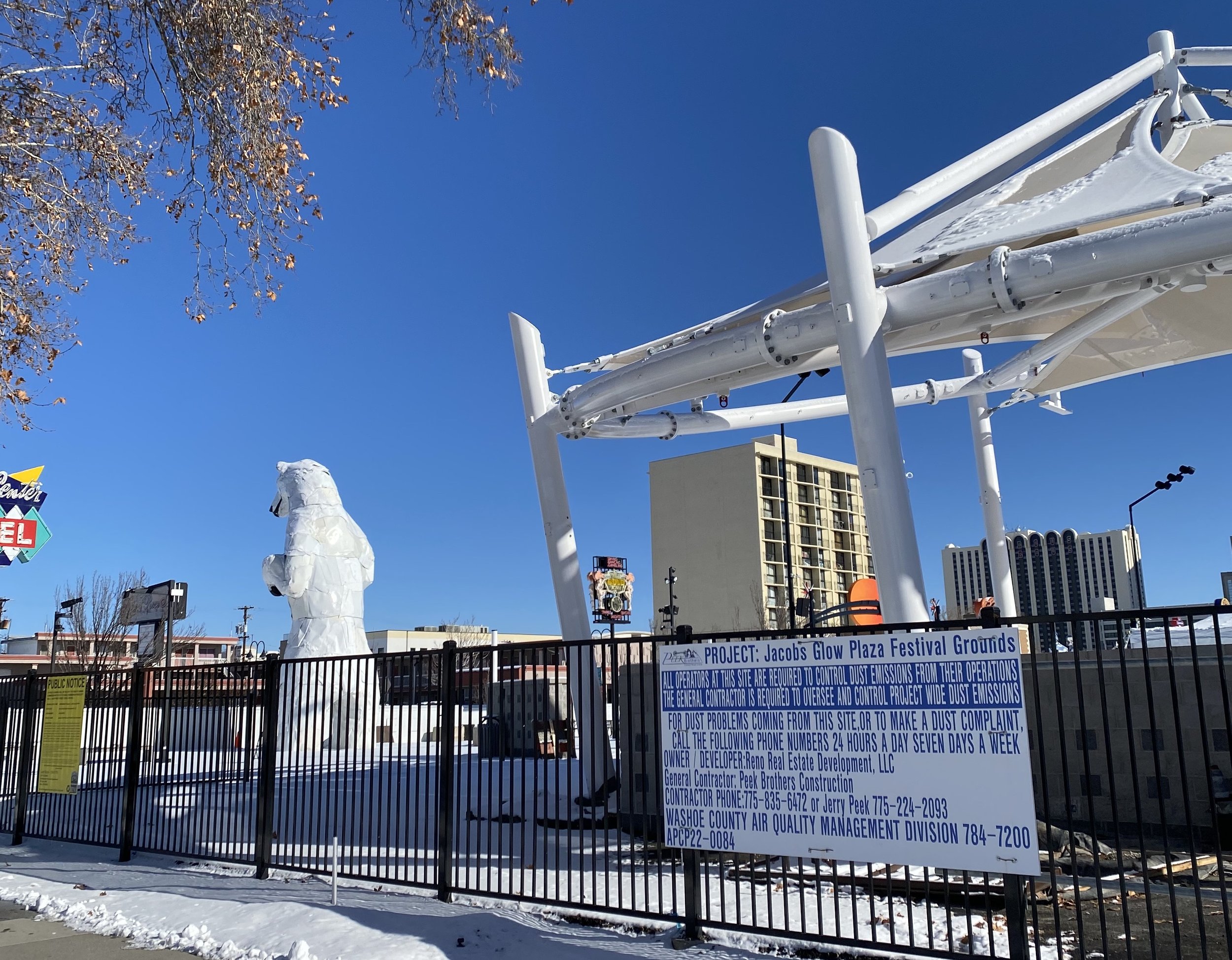As the Barber Brief pointed out earlier this week, a Planning Commission meeting this Wednesday evening will have Jacobs Entertainment basically trying to expand its Glow Plaza project to within its Sands property, so that it can use its casino digital billboards to advertise its nearby festival grounds. Casinos in Reno can use their big billboards typically only for on-site activities.
This is “a ploy to circumvent the city’s digital billboard regulations,” according to the Scenic Nevada website. “The Glow Plaza is meant to get the same type and size signs on its property as any other business in the mixed use Fourth Street corridor, under Reno sign regulations. Instead, Jacobs wants an amended conditional use permit from the city to allow the Glow Plaza to advertise his festival events on his mega digital casino signs, to be located down the street from the festival venue.”
According to the Barber Brief by local historian Alicia Barber, Reno has allowed the Sands to get a new digital billboard but with the caveat, “the digital displays can only advertise onsite activity.” “So here we are, months later, with Jacobs seeking to redefine the events on the Glow Plaza as “onsite activity” for the Sands by literally adding the Sands to the Glow Plaza's permitting boundary,” Barber writes.
Scenic Nevada which has dug deep into this issue adds: "Reno’s sign code would limit the Glow Plaza to a 35-foot tall, digital flashing and animated sign not to exceed 125 square feet. According to our calculations the Sands sign is about 33 times larger than what the Glow Plaza would be allowed under normal circumstances."
The non profit which works “to protect the scenic beauty of Nevada’s majestic landscape as well as the scenic character of our communities,” also has a pending lawsuit against Reno “to halt three large signs from being erected to advertise the new Neon Line District in the west end of downtown and along the freeway.” These were approved in October 2021, but Scenic Nevada says the signs “do not comply with code and putting them in the DA [Development Agreement] to circumvent the city’s sign code actually runs afoul of state law which says that a development agreement can only govern land in which the developer has a real property interest.”
Other media haven’t covered the Jacobs project much in recent months, as it’s been a slow slog of buying up more properties (three parcels bought in October 2022, including the Rancho Sierra Motel), bulldozers moving around dirt on other bought out and fenced off properties, with little to show for besides renderings for a now promised 60-unit apartment complex at the corners of Second Street and Arlington Avenue. The pandemic was previously used by Jacobs Entertainment as an excuse for lack of any new construction, while other companies remained busy.
A possible looming recession will certainly be used as another excuse for this slow moving project, destroying mostly motels and displacing its lower income residents, with incremental changes to previous sweeping agreements requested and usually approved by Reno city bodies.


